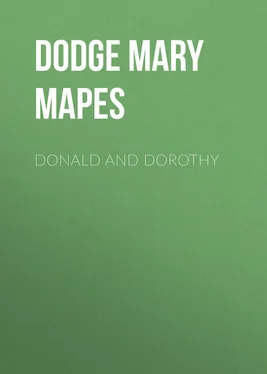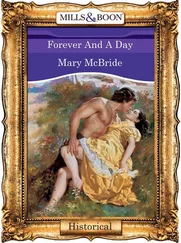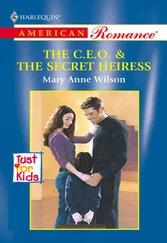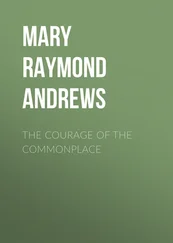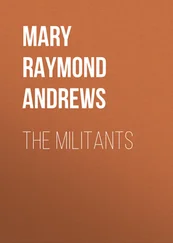Mary Dodge - Donald and Dorothy
Здесь есть возможность читать онлайн «Mary Dodge - Donald and Dorothy» — ознакомительный отрывок электронной книги совершенно бесплатно, а после прочтения отрывка купить полную версию. В некоторых случаях можно слушать аудио, скачать через торрент в формате fb2 и присутствует краткое содержание. Жанр: foreign_antique, foreign_prose, на английском языке. Описание произведения, (предисловие) а так же отзывы посетителей доступны на портале библиотеки ЛибКат.
- Название:Donald and Dorothy
- Автор:
- Жанр:
- Год:неизвестен
- ISBN:нет данных
- Рейтинг книги:4 / 5. Голосов: 1
-
Избранное:Добавить в избранное
- Отзывы:
-
Ваша оценка:
- 80
- 1
- 2
- 3
- 4
- 5
Donald and Dorothy: краткое содержание, описание и аннотация
Предлагаем к чтению аннотацию, описание, краткое содержание или предисловие (зависит от того, что написал сам автор книги «Donald and Dorothy»). Если вы не нашли необходимую информацию о книге — напишите в комментариях, мы постараемся отыскать её.
Donald and Dorothy — читать онлайн ознакомительный отрывок
Ниже представлен текст книги, разбитый по страницам. Система сохранения места последней прочитанной страницы, позволяет с удобством читать онлайн бесплатно книгу «Donald and Dorothy», без необходимости каждый раз заново искать на чём Вы остановились. Поставьте закладку, и сможете в любой момент перейти на страницу, на которой закончили чтение.
Интервал:
Закладка:
Mary Mapes Dodge
Donald and Dorothy
CHAPTER I.
IN WHICH NONE OF THE CHARACTERS APPEAR
HE door of the study was closed, and only Nero was to be seen. He, poor dog, stood in the wide hall gazing wistfully at the knob, and pricking up his ears whenever sounds of movement in the room aroused his hope of being admitted. Suddenly he gave a yelp of delight. Somebody surely was approaching the door. The steps – they were a man's – halted. There was a soft, rolling sound, as if the master's chair were being drawn to the table; next, a rustling of paper; a deep-voiced moan; the rapid scratching of a quill pen; then silence – silence – and poor Nero again stood at half-mast.
Any ordinary dog would have barked, or pawed impatiently at the door. But Nero was not an ordinary dog. He knew that something unusual was going on, something with which even he, the protector and pet of the household, the frisky Master of Ceremonies, must not interfere. But when the bell-pull within the room clicked sharply, and a faint tinkle came up from below, he flew eagerly to the head of the basement stairs, and wagged his bushy tail with a steady, vigorous stroke, as though it were the crank of some unseen machine which slowly and surely would draw Liddy, the housemaid, up the stairway.
The bell rang again. The machine put on more steam. Still no Liddy. Could she be out? Nero ran back to take an agonized glance at the motionless knob, leaped frantically to the stairs again – and, at that moment, the study-door opened. There was a heavy tread; the ecstatic Nero rushed in between a pair of dignified legs moving toward the great hall door; he spun wildly about for an instant, and then, with a deep sigh of satisfaction, settled down on the rug before the study fire. For there was not a soul in the room.
CHAPTER II.
FOURTEEN YEARS AFTERWARD
The house is there still; so is Nero, now an honored old dog frisky only in his memories. But old as he is in teeth and muscle, he is hardly past middle-age in the wag of his still bushy tail, and is as young as ever in happy devotion to his master. Liddy, too, is down stairs, promoted, but busy as in the days gone by; and the voice of that very bell tinkled but an hour ago.
Here is the same study; some one within, and the door closed. Opposite, on the other side of the wide hall, is the parlor, its windows looking across piazza, sloping lawn, road-way, and field, straight out to the sparkling lake beyond. Back of the parlor is a sunny sitting-room, its bay-window framing a pleasant view of flower-garden, apple-orchard, and grape-arbor – a few straggling bunches clinging to the almost leafless November vines. And within, throughout the house indeed, floats a sunny-shady combination of out-door air, with a faint, delightful odor of open wood-fires. What a quiet, homelike, beautiful place it is!
Let us look into the sitting-room.
A boy, with his back toward the door, mounted upon the end of a big sofa, his bended knee tightly held between his arms, his head thrust forward earnestly, – altogether, from the rear view, looking like a remarkable torso with a modern jacket on, – that's Donald. Near him, on the sofa, a glowing face with bright brown hair waving back from it, the chin held in two brownish little hands, and beneath that a mass of dark red merino, revealing in a meandering, drapery way that its wearer is half-kneeling, half-sitting, – that's Dorothy.
I am obliged to confess it, these two inelegant objects on a very elegant piece of furniture are the hero and heroine of my story.
Do not imagine, however, that Donald and Dorothy could not, if they chose to do so, stand before you comely and fair as any girl and boy in the land. It is merely by accident that we catch this first glimpse of them. They have been on that sofa in just those positions for at least five minutes, and, from present appearances, they intend to remain so until further notice.
Dorothy is speaking, and Donald is – not exactly listening, but waiting for his turn to put in a word, thus forming what may be called a lull in the conversation; for up to this point both have been speaking together.
"It's too much for anything, so it is! I'm going to ask Liddy about it, that's what I'm going to do; for she was almost ready to tell me the other day, when Jack came in and made her mad."
"Don't you do it!" Donald's tone is severe, but still affectionate and confidential. "Don't you do it. It's the wrong way, I tell you. What did she get mad at?"
"Oh, nothing. Jack called her 'mess-mate' or something, and she flared up. But, I tell you, I'm just going to ask her right out what makes him act so."
"Nonsense," said Donald. "It's only his sailor-ways; and besides – "
"No, no. I don't mean Jack. I mean Uncle. I do believe he hates me!"
"Oh, Dorry! Dorry!"
"Well, he doesn't love me any more, anyhow! I know he's good and all that, and I love him just as much as you do, Don, every bit, so you needn't be so dreadfully astonished all in a minute. I love Uncle George as much as anybody in the world does, but that is no reason why, whenever Aunt Kate is mentioned, he – "
"Yes, it is, Dot. You ought to wait."
"I have waited – why, Don" (and her manner grows tearful and tragic), "I've waited nearly thirteen years!"
Here Don gives a quick, suddenly suppressed laugh, and asks her, "why she didn't say fourteen," and Dorothy tells him sharply that "he needn't talk – they're pretty even on that score" (which is true enough), and that she really has been "longing and dying to know ever since she was a little, little bit of a girl, and who wouldn't?"
Poor Dorothy! She will "long to know" for many a day yet. And so will the good gentleman who now sits gazing at the fire in the study across the wide hall, his feet on the very rug upon which Nero settled himself on that eventful November day, exactly fourteen years ago.
And so will good, kind Lydia, the housekeeper, and so will Jack, the sailor-coachman, at whom she is always "flaring up," as Dorothy says.
CHAPTER III.
WHICH PARTLY EXPLAINS ITSELF
Dorothy Reed was of a somewhat livelier temperament than Donald, and that, as she often could not but feel, gave her an advantage. Also, she was ahead of him in history, botany, and rhetoric. Donald, though full of boyish spirit, was steadier, more self-possessed than Dorothy, and in algebra and physical geography he "left her nowhere," as the young lady herself would tersely confess when in a very good humor. But never were brother and sister better friends. "She's first-rate," Don would say, confidentially, to some boon companion, "not a bit like a girl, you know, – more like – well, no, there's nothing tomboyish about her, but she's spirited and never gets tired or sickish like other girls." And many a time Dorothy had declared to some choice confidential friend of the twining-arms sort, that Donald was "perfectly splendid! nicer than all the boys she ever had seen, put together."
On one point they were fully united, and that was in their love for Uncle George, though of late it seemed that he was constantly making rough weather for them.
This expression, "rough weather," is not original, but is borrowed from Sailor Jack, whom you soon shall know nearly as well as the two D's did.
And "the two D's" is not original either. That is Liddy's. She called Donald and Dorothy "the two D's" for brevity's sake, when they were not present, just as she often spoke of the master of the house, in his absence, as "Mr. G." There was no thought of disrespect in this. It was a way that had come upon her after she had learned her alphabet in middle life, and had stopped just at the point of knowing or guessing the first letter of a word or a name. Farther than that into the paths of learning, Liddy's patience had failed to carry her. But the use of initials she felt was one of the short cuts that education afforded. Besides, the good soul knew secrets which, without her master's permission, nothing would induce her to reveal. So, to speak of "Mr. G." or "the D's," had a confidential air of mystery about it that in some way was a great relief to her.
Читать дальшеИнтервал:
Закладка:
Похожие книги на «Donald and Dorothy»
Представляем Вашему вниманию похожие книги на «Donald and Dorothy» списком для выбора. Мы отобрали схожую по названию и смыслу литературу в надежде предоставить читателям больше вариантов отыскать новые, интересные, ещё непрочитанные произведения.
Обсуждение, отзывы о книге «Donald and Dorothy» и просто собственные мнения читателей. Оставьте ваши комментарии, напишите, что Вы думаете о произведении, его смысле или главных героях. Укажите что конкретно понравилось, а что нет, и почему Вы так считаете.
